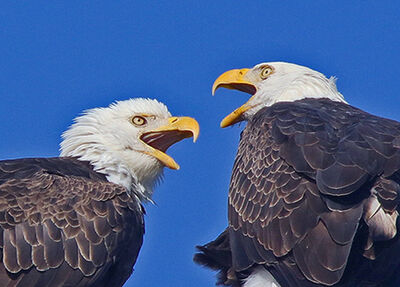Use of CPL filter with Long telephoto lens
Mar 1, 2022 17:28:33 #
mdougc wrote:
I think I want to use a CPL filter with my 150-600... (show quote)
A polarizer is not really practical for what you want to do ! Your AF WILL be negatively affected. Using full frame and properly exposed raw, you should not be having this "problem".
I do not shoot raw, but I have a Sony and when shooting high contrast mostly static subjects from a tripod, I have been using the Sony in camera 3 exposure HDR setting to retain details. Not sure, but your Canon mirrorless MIGHT do this also .....
.
Mar 1, 2022 20:32:32 #
TRSquared
Loc: South Carolina
I have read all the replies to your question and there is a great deal of opinion and some of it is just that, opinion while some is just inaccurate or wrong. Having done for several decades the kind of work you have an interest in, I offer what I know from experience.
First, about light, color and polarization. When light strikes a surface there are usually two components to the reflection. The first component is the light that reflects from the very top of the surface. This effect happens with leaves, rocks, feathers and most of the surfaces that are nonmetalic. That component is specular and, becasue of the physics of the reflection, is polarized in a plane parallel to the surface. Using a polarizing filter can remove this component or significantly reduce its contribution. This component is just light without any information about the subject and it reduces color saturation. The second component penetrates the surface some and acquires the color information that is transmitted to the camera. For these reasons I have always used a polarizer when possible in doing nature and wildlife work with long lenses becasue it permits better color saturation and more accurate color as well.
In practice I have adjusted the amount of polarization to obtain the result I desire. Sometime I applied full effect, sometimes none and sometimes somewhere between the two. More recently I have found a filter thread attachment that screws onto my lens and holds my polarizing filter. The device has a hinge whereby I can flip the filter to the side if I need more light or find that filter is causing other difficulties. I wish I had made such an accessory years ago. It allows me to have the advantage of both approaches, to shoot with or without a polarizer.
First, about light, color and polarization. When light strikes a surface there are usually two components to the reflection. The first component is the light that reflects from the very top of the surface. This effect happens with leaves, rocks, feathers and most of the surfaces that are nonmetalic. That component is specular and, becasue of the physics of the reflection, is polarized in a plane parallel to the surface. Using a polarizing filter can remove this component or significantly reduce its contribution. This component is just light without any information about the subject and it reduces color saturation. The second component penetrates the surface some and acquires the color information that is transmitted to the camera. For these reasons I have always used a polarizer when possible in doing nature and wildlife work with long lenses becasue it permits better color saturation and more accurate color as well.
In practice I have adjusted the amount of polarization to obtain the result I desire. Sometime I applied full effect, sometimes none and sometimes somewhere between the two. More recently I have found a filter thread attachment that screws onto my lens and holds my polarizing filter. The device has a hinge whereby I can flip the filter to the side if I need more light or find that filter is causing other difficulties. I wish I had made such an accessory years ago. It allows me to have the advantage of both approaches, to shoot with or without a polarizer.
Mar 2, 2022 12:23:13 #
mdougc wrote:
I think I want to use a CPL filter with my 150-600... (show quote)
I use CPLs with my 500pF and 200-500. I do not like the loss of a stop or more. The color saturation is not so great, not so much as in the film days... Using the controls in most pp editors probably gives one a better set of choices.
In the field I take a few shots using the camera settings I think are necessary. I review the shots, looking for blown highlights and the like and make the appropriate adjustments. Exposure Control is a good way to balance the exposure, too!
If you want to reply, then register here. Registration is free and your account is created instantly, so you can post right away.

